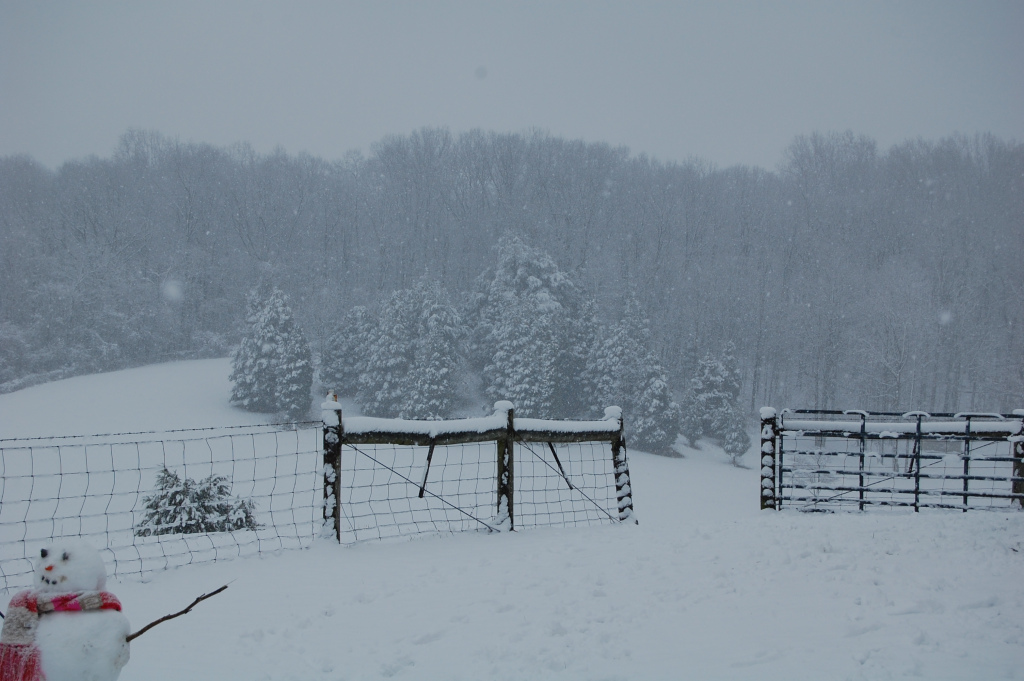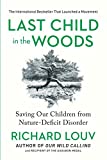Last Child in the Woods: Saving Our Children From Nature-Deficit Disorder

This post may contain affiliate links, which means I make a small commission at no extra cost to you.
See my full disclosure here.
While I am not an “animal person” (something I recently came to terms with, after growing up on a small farm), I have always been a “nature person.”
As an adult, I’ve come to value the many opportunities my childhood afforded me to become personally acquainted with God’s creation.
As a parent, I greatly desire my children to know and experience the awesomeness of our Creator by regularly exposing them to the intricacies of His handiwork.
It was for this very reason that Mr. Native Texan and I chose to live out in the country, on a bit of land where we have room to explore the great outdoors.
Every single day, I am deeply thankful to live in an area of such natural beauty, with a magnificent view of the changing seasons.
It truly brings to life the wonderful hymn How Great Thou Art:
O Lord my God! When I in awesome wonder
Consider all the works thy hand hath made,
I see the stars, I hear the mighty thunder,
Thy power throughout the universe displayed;
When through the woods and forest glades I wander
and hear the birds sing sweetly in the trees;
when I look down from lofty mountain grandeur,
and hear the brook, and feel the gentle breeze;
Then sings my soul, my Saviour God, to Thee,
How great Thou art, how great Thou art!
Then sings my soul, my Saviour God, to Thee,
How great Thou art, how great Thou art!
Richard Louv’s excellent book Last Child in the Woods gives a name to a disturbing trend in our 21st century society: Nature-Deficit Disorder. He shows, with empirical data, the devastating effect on an entire generation of the shift in our relationship to the natural world.
For a new generation, nature is more abstraction than reality. Increasingly, nature is something to watch, to consume, to wear—to ignore. A recent television ad depicts a four-wheel-drive SUV racing along a breathtakingly beautiful mountain stream—while in the backseat two children watch a movie on a flip-down video screen, oblivious to the landscape and water beyond the windows.
Richard Louv, you’re preaching to the choir! If you only knew how many times I wanted to stand up and shout “Amen!” while reading this book….Actually, I did in fact issue several Amen’s, complete with enthusiastic book thumping. And until now, Mr. Native Texan was the lone, lucky recipient of my enthusiasm for both this book and its topic. (Oh, and the local MOPS group where I had the recent privilege of addressing the topic Exploring Nature With Preschoolers. But they missed out on the Amen’s and book thumping).
In this influential work about the staggering divide between children and the outdoors, child advocacy expert Richard Louv directly links the lack of nature in the lives of today’s wired generation—he calls it nature-deficit—to some of the most disturbing childhood trends, such as the rises in obesity, attention disorders, and depression.
Last Child in the Woods is the first book to bring together a new and growing body of research indicating that direct exposure to nature is essential for healthy childhood development and for the physical and emotional health of children and adults. More than just raising an alarm, Louv offers practical solutions and simple ways to heal the broken bond—and many are right in our own backyard.
Last Child in the Woods: Saving our Children from Nature Deficit Disorder has spurred a national dialogue among educators, health professionals, parents, developers and conservationists. This is a book that will change the way you think about your future and the future of your children. (source)
I should point out that Last Child in the Woods is not written from a Christian worldview. In fact, the view is decidedly humanistic. At times, when Louv described the positive effects of exposure to nature, as evidenced by a growing body of research, I wanted to shout “Yes, it’s because we were created to know and worship the Creator of all this beauty!”
It’s wonderful to see scientific data backing up what we’ve known all along:
You alone are the Lord. You made the heavens, even the highest heavens, and all their starry host,the earth and all that is on it, the seas and all that is in them. You give life to everything, and the multitudes of heaven worship you. (Nehemiah 9:6)

photo by Chris Potako
Al Mohler, president of The Southern Baptist Theological Seminary — the flagship school of the Southern Baptist Convention and one of the largest seminaries in the world, eloquently states the following in his (more excellent than mine) review of Louv’s book:
Richard Louv is a champion of nature, and Last Child in the Woods is a powerful call for human beings to reconnect with the natural world. It would do us all a world of good to take a walk in the woods, to play outdoors, and to remember that the world is filled with a variety of flora and fauna that defies the imagination and thrills the senses.
Last Child in the Woods is a fascinating book, though at times, Louv leans toward a form of nature mysticism. Nevertheless, Christians will read this book to great profit, remembering that the biblical worldview presents an affirmation of the goodness of creation. After all, Christians know that every atom and molecule of creation testifies of the glory of God.
This is our Father’s world, and we would do well to receive this world and enjoy it, while giving praise and glory to God for the beauty and bounty it contains. We understand that nature is not an end to itself, and we affirm that the creation exists as the theater of God’s glory for the drama of redemption. All this should help Christians to remember that we honor God most faithfully when we receive His good gifts most gratefully.
Christians should take the lead in reconnecting with nature and disconnecting from machines. Taking the kids for a long walk in the woods would be a great start. (emphasis mine)
I highly recommend this book to all parents, educators, counselors, nature-enthusiasts, medical professionals, etc!
And even more importantly, whether or not you read the book, I encourage all parents and care-givers of children to consider strongly the importance of regular time in nature. Whether your biggest concern is intellectual, emotional, physical, spiritual, or all of the above, frequent exposure to nature serves as an irreplaceable foundation for healthy child-development.
Have you read Last Child in the Woods?
- Purchase Last Child in the Woods on Amazon
- Visit Richard Louv’s website
- Read Al Mohler’s entire review
Other posts you might like:

Sign up NOW for my best tips delivered weekly to your inbox!
You’ll also get instant access to my library of free ebooks and resources.
You might also like...
3 responses to “Last Child in the Woods: Saving Our Children From Nature-Deficit Disorder”
-
Good book!
-
I just started reading this book. It makes so much sense, and a great reminder how being out in God’s creation regularly is so important! By the way, you have a gorgeous view from your backyard : )
-
Thanks, Channon. I agree–about both the book and the view! 🙂
-









Leave a Comment